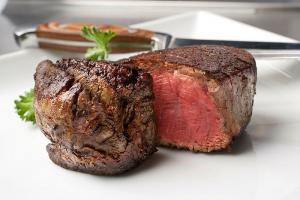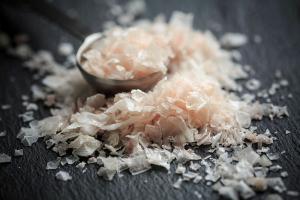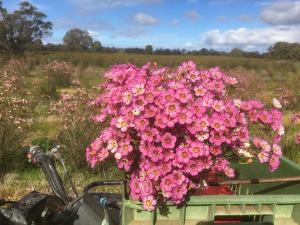Business envoy July 2021
Japan: plating up our safe secure and reliable agribusiness reputation
Australia’s second largest trading partner, Japan continues to provide opportunities for Australian exporters.
Japanese consumers view Australia as a safe, secure and reliable supplier of food, offering opportunities for Australian agribusinesses looking to expand and diversify.
While beef is Australia’s fourth largest export to Japan, behind natural gas, coal and iron ore, there are real opportunities in seafood, and horticulture, as well as processed food and beverages. The Japanese market is, however, highly competitive and consumers are sophisticated and discerning; prospective exporters will need to do their homework, commit for the long-term and find good local partners to ensure success.
Reflecting a growing demand for niche and premium products, Tasman Sea Salt kicked off exports to Japan in March 2020. Austrade Tokyo assisted with market research and a business matching process meaning that the all natural Australian sea salt flakes harvested from the pure waters of Tasmania will feature in stores and eventually on the tables of izakayas in Tokyo and across Japan.
Japanese consumers continue to seek products that improve their health. There is growing interest in disease prevention and strengthening immunity from Japan’s ageing population, following the COVID-19 pandemic.
Fortified/functional (FF) packaged food saw a 5 per cent growth in both retail current value terms and retail volume terms in 2020, to reach JPY1.3 trillion and 1.5 million tonnes[1]. FF breakfast cereals recorded the highest retail current value growth of 14 per cent in 2020, to reach JPY76.8 billion.
BARLEYmax, which was developed by the CSIRO over a decade, has twice the total dietary fibre and four times the resistant starch content compared to regular barley. Since Japan started importing BARLEYmax, it has been used in many products, including noodles.
Plant-based food and beverage products is another growing sector, with increasing interest in plant-based alternatives to meat due to health benefits. Almond milk, rice milk and macadamia milk have also become staples in supermarkets recently, and now oat milk is appearing on the shelves.
[1] Source: Euromonitor International
Airfreight assistance keeps flowers flowing to Japan
While Australia’s fresh-cut flower and foliage exports dropped 30 per cent from 2019 to 2020, due to restrictions brought on by COVID-19, the country’s leading wildflower exporter, Wafex, is seeing business bloom again.
This coming season, kicking off in July, it’s planning to distribute some of the country’s most prized wildflowers and waxflowers in Japan, as well as the United States, Taiwan, China, Singapore, Hong Kong, the Netherlands and Vietnam.
Wafex, which employs 150 staff across four continents, was facing a $5 million annual loss when the pandemic drew its exporting business to a halt in 2020.
Wafex Executive Director Business Development Craig Musson said without the Australian Government’s International Freight Assistance Mechanism (IFAM), the company – which has a 50% market share of the country’s wildflower export market – would have struggled to survive.
“IFAM single-handedly saved our export business last year,” Mr Musson said. “Without IFAM we would not have been able to export anything at all. We would have taken a $5 million hit and had to lay off many of our workers. We have 50 commercial flower growers reliant on our exports and some would have gone out of business as well.
“The freight assistance mechanism allowed us to get some of our product out to the international market during what was an incredibly difficult time to export.”
IFAM is a targeted, temporary measure keeping global air links open in response to the pandemic to support regions, communities and industry sectors that have been disproportionately affected by COVID-19.
Image courtesy of WAFEX



